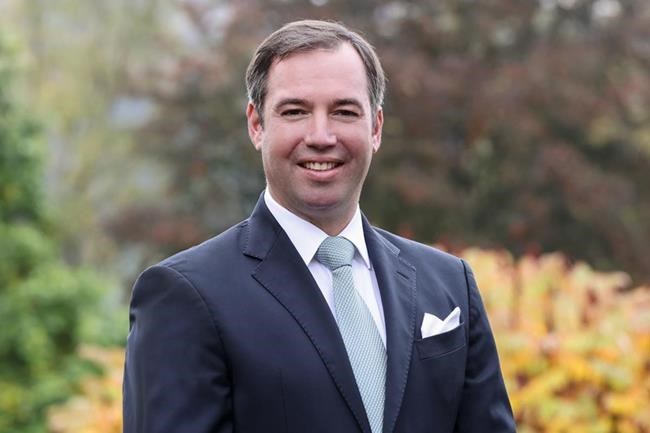OTTAWA — The crown prince of Luxembourg, who is in Toronto on an official trade visit, has spoken out publicly about how his family took refuge in Canada during the Second World War.
Prince Guillaume Jean Joseph Marie, heir to the Luxembourg throne, said not many people know his great-grandparents, grandfather and other royal family members lived on a farm in Quebec in the 1940s after the Nazis invaded in 1940. Charlotte, then-ruling grand duchess of Luxembourg, took refuge in Quebec with her six children.
"It is more well known that the Dutch royal family had spent time here in Canada, but the Luxembourg family as well," he said in an interview.
His remarks come weeks after Princess Margriet of the Netherlands paid tribute to the role Canada played in giving the Dutch royal family a haven during the Second World War.
The princess visited the nation's capital last month, where she was born at the Ottawa Civic Hospital after her family fled in 1940.
Prince Guillaume stressed that his family also has close connections with Canada and fond memories of living here.
The crown prince is taking part in a large trade delegation with members of the Luxembourg government. He said the country is particularly focused on deepening co-operation on high-tech, including on cybersecurity.
"We already have very, very close economic links," he said. "The trade relationship is already very strong but there is more potential. I think it is one of the first trade missions outside Luxembourg post the pandemic."
At a speech on Monday evening, the heir to Luxembourg's throne talked about his family's gratitude.
The prince said it is "a relatively unknown fact that the grand-ducal family and parts of the Luxembourg government fled to Canada during the Nazi occupation of our country during Second World War."
Luxembourg's prime minister during the Second World War, Pierre Dupong, also lived in exile in Canada.
He said that safe haven is now being extended to Ukrainian refugees in the latest European conflict.
"I have personally a deep respect and a sincere gratitude towards the Canadian culture of welcome, not least because it offered shelter to my family during the darkest hours of our contemporary history," he said in a speech at the InterContinental Hotel in Toronto.
"My grandfather, the late Grand-Duke Jean, used to tell us stories about my family’s Canadian period and how they enjoyed their stay here despite the difficult circumstances," he said.
The Nazi occupation of Luxembourg, Belgium and the Netherlands began in May 1940.
Many Luxembourgers were conscripted into the German military and nearly 3,500 Luxembourg Jews were murdered during the Holocaust.
The grand duchess and her children fled the occupation and first went into exile in France, then London and then settled in Montreal. She addressed her country by radio while in Montreal and also toured the U.S., the prince said, to raise awareness of Nazi occupation of Europe.
Her son, Hereditary Grand Duke Jean, took part in the 1944 Normandy landings, the seaborne invasion of occupied mainland Europe by the Allies, including Canada. Luxembourg was fully liberated from Nazi occupation in 1945, following the German Ardennes offensive, or Battle of the Bulge, in Belgium and Luxembourg.
The prince said his grandfather went to Laval University in Quebec City and also lived in a Montreal house that is now home to the honorary consulate of the Czech Republic.
Hereditary Grand Duke Jean studied law and political science at Laval, while his sisters were students at the Laval-associated Collège Jésus-Marie de Sillery. His brother Charles attended the Jesuit College, now known as St. Charles Garner College, a secondary school also affiliated with the university.
A road near Laval University has been named Rue de Luxembourg.
The prince said his grandfather loved skiing, "and that also went through the generations — my father also had the opportunity to enjoy your wonderful slopes."
"I had the opportunity to speak a lot with my grandfather about it," the prince said. "And all his siblings had a very nice experience of various boarding schools. They stayed in Canada quite a long time. They stayed here four years during wartime."
The prince says his family has mementoes of Canada and collected Canadian art that still hangs in their homes, including Indigenous pieces.
The prince said he has been on a number of official visits to Canada, and that he and his family also visited for pleasure.
"I had the opportunity to travel a few times and see where they lived in Montreal," he said.
The crown prince, who is the eldest son of Henri, grand duke of Luxembourg, is a board member of the World Scout Foundation and played in a rock band while at school. Like his father and grandfather, he attended Sandhurst military academy in England.
This report by The Canadian Press was first published June 20, 2022.
Marie Woolf, The Canadian Press




